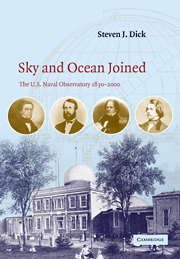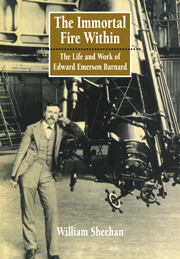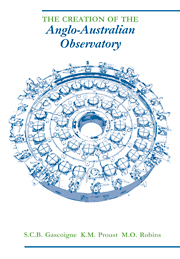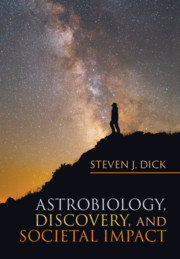Sky and Ocean Joined
As one of the oldest scientific institutions in the United States, the US Naval Observatory has a rich and colourful history. This volume is, first and foremost, a story of the relations between space, time and navigation, from the rise of the chronometer in the United States to the Global Positioning System of satellites, for which the Naval Observatory provides the time to a billionth of a second per day. It is a story of the history of technology, in the form of telescopes, lenses, detectors, calculators, clocks and computers over 170 years. It describes how one scientific institution under government and military patronage has contributed, through all the vagaries of history, to almost two centuries of unparalleled progress in astronomy. Sky and Ocean Joined will appeal to historians of science, technology, scientific institutions and American science, as well as astronomers, meteorologists and physicists.
- An authoritative history of one of the oldest scientific institutions in the United States
- Includes many colourful discoveries and adventures, such as the moons of Mars
- Ideal for academics and enthusiasts interested in naval history, positional astronomy and celestial mechanics
Reviews & endorsements
"...an historical tour-de-force, and I thoroughly recommend it to everyone interested in U.S. astronomical history, positional astronomy, national observatories, naval history, navigation, time-keeping, or the conflict involving civilian and military control of science." Journal of Astronomical History and Heritage
"It provides insight for scholars and general readers interested in naval history and navigation, timekeeping, positional astronomy, and celestial mechanics, and it charts the relationship between astronomy and astrophysics, the rise of national observatories and military patronage." Bulletin of Science Technology and Society
"An amazingly comprehensive and detailed history of the oldest major astronomical observatory in the United States, this excellent book offers mature readers fascinating stories of scientific discoveries (e.g. of the moons of Mars and Pluto), technological developments (e.g. from mechanical clocks working before there were any time zones to today's satellites that provide nanaosecond accuracies worldwide), and personal and political struggles (both governmental and institutional)." Science Books & Films
"Sky and Ocean Joined is quite well written and will certainly appeal to historians of science and technology, as well as naval enthusiasts, physicists, and anyone generally interested in astronomy." Stardust
"Extensively researched over 15 years, this book is well written and well documented with footnotes, select bibliographic essays, appendixes, and indexes. Recommended." Choice
"Sky and Ocean Joined is an outstanding book." Technology and Culture, Robert W. Smith
Product details
July 2007Paperback
9780521037501
624 pages
243 × 169 × 30 mm
0.986kg
223 b/w illus. 31 tables
Available
Table of Contents
- Acknowledgements
- Abbreviations
- Introduction
- Prelude: perspectives and problems: the nation, the navy, the stars
- Part I. The Founding Era, 1830–65:
- 1. From depot to national observatory, 1830–46
- 2. A choice of roles: the Maury years, 1844–61
- 3. Foundations of the American Nautical Almanac Office, 1849–65
- 4. Gilliss and the Civil War years
- Part II. The Golden Era, 1866–93:
- 5. Scientific life and work
- 6. Asaph Hall, the great refractor and the moons of Mars
- 7. William Harkness and the transits of Venus of 1874 and 1882
- 8. Simon Newcomb and his work
- Part III. The Twentieth Century:
- 9. Observatory circle: a new site and administrative challenges for the twentieth century
- 10. Space: the astronomy of position and its uses
- 11. Time: a service for the world
- 12. Navigation: from stars to satellites
- Summary
- Select bibliographical essay
- Appendices
- Index.










